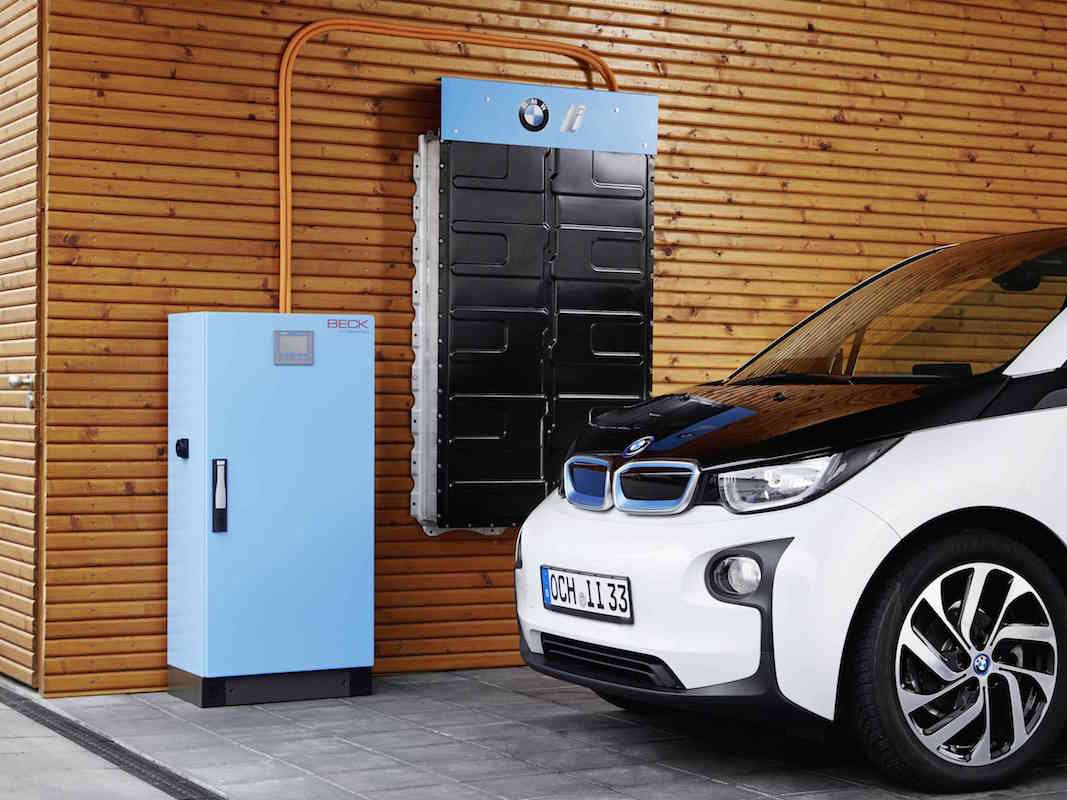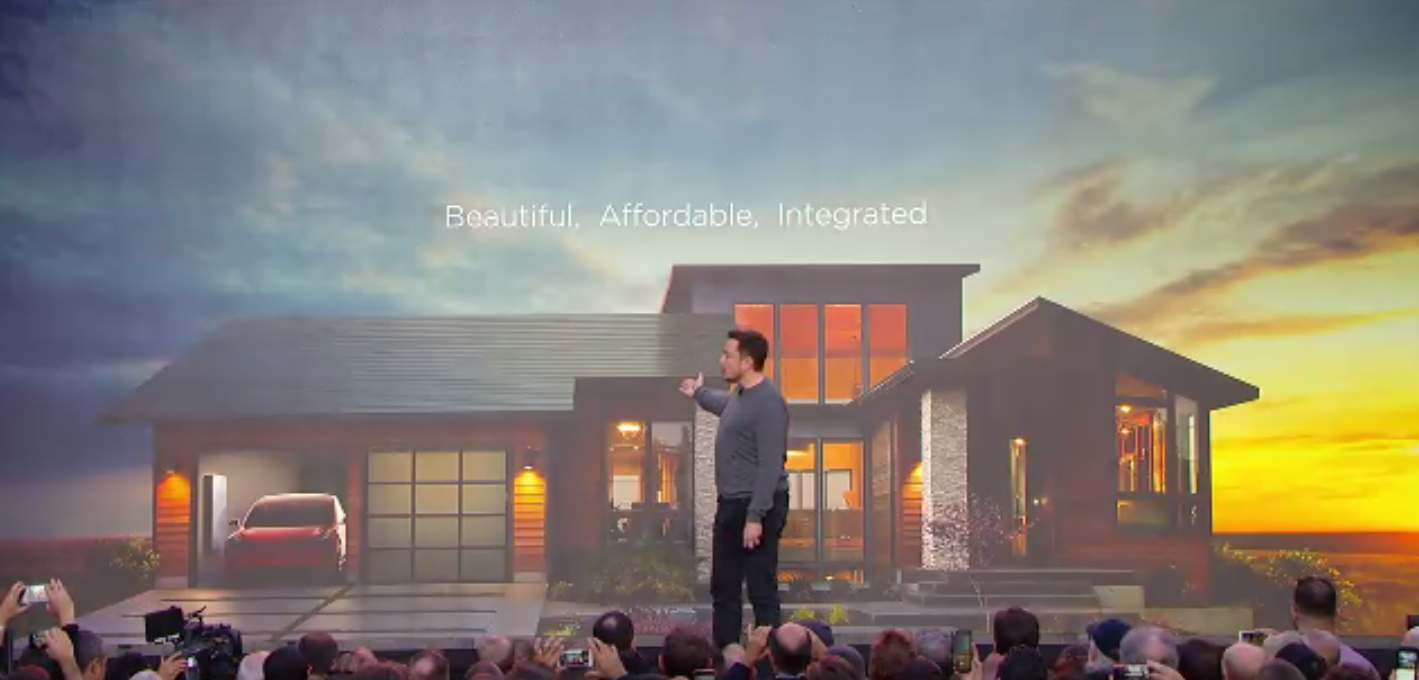Tesla CEO Elon Musk is looking to disrupt renewable energy.
Musk unveiled the new version of its at-home battery, Powerwall 2.0, on Friday night. The battery comes with technical and design improvements from its predecessor, but it also speaks to Tesla’s larger vision for energy. Musk wants to bring solar installation and battery installation, two processes that inherently rely on each other, together as one simple, integrated process.
Part of that vision involves Tesla merging with SolarCity, a controversial deal worth $2.6 billion, which shareholders will vote on November 17.
At-home batteries can store electricity generated by solar panels and draw electricity from the utility grid when rates are low to store for later use. They also provide homeowners with backup power in the event of an outage.
But Tesla isn’t the only company offering an at-home battery solution.
Here's a closer look at Tesla's Powerwall 2.0 and its competition.
1. Tesla's Powerwall 2.0 is a 269-pound lithium ion battery that you can mount on your wall. Panasonic makes the cells for the battery, while Tesla builds the battery module and pack. The whole thing costs $5,500, including the inverter, and stores 13.5 kWh of energy.

For reference, the average person uses 30 kWh of power a day.
The Powerwall is modular, so you can link up to nine batteries side-by-side to store more energy. Tesla estimates it will cost $1,000 to install the Powerwall, with installations beginning January 2017.
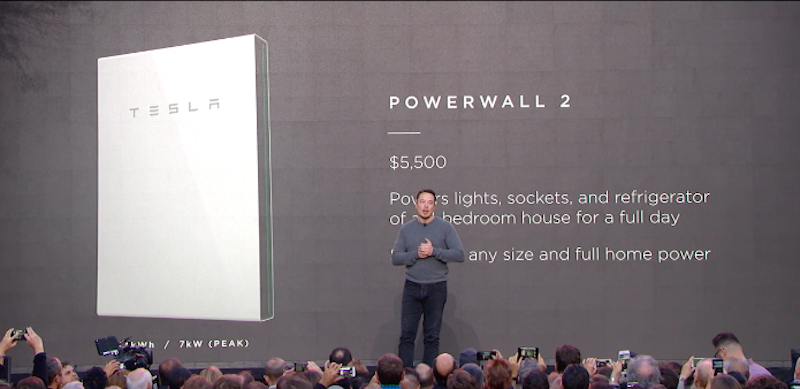
2. The LG Chem RESU battery is probably Tesla's closest competitor in the space. LG Chem announced just last week it would bring its battery option to the US through a partnership with rooftop solar company Sunrun. That would make the RESU available to Sunrun customers and its products distribution arm — a similar strategy to making the Powerwall available to SolarCity customers.
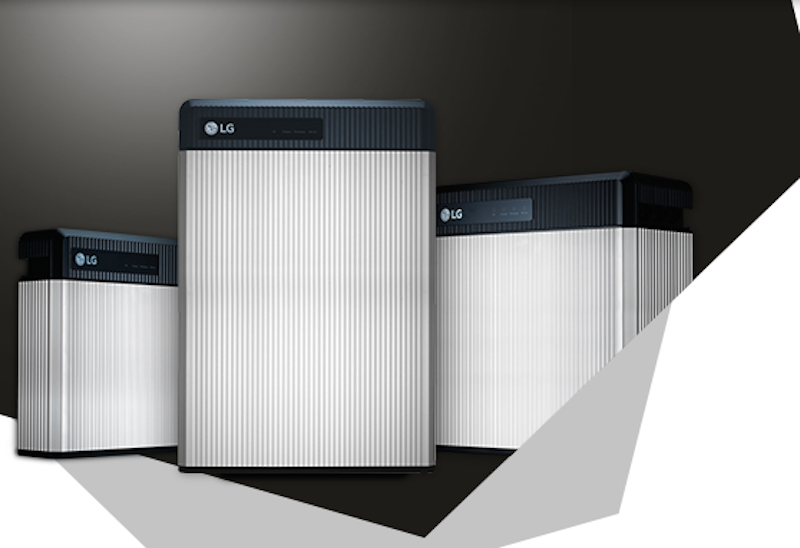
You can read more about LG Chem's Sunrun partnership here.
LG Chem's battery holds 6.5 kWh of energy and costs roughly $4,000, but the inverter is sold separately. That price also doesn't factor the cost of installation. Still, the RESU is pretty close to the Powerwall in terms of pricing and will enter the US market at around the same time as Powerwall 2.0.
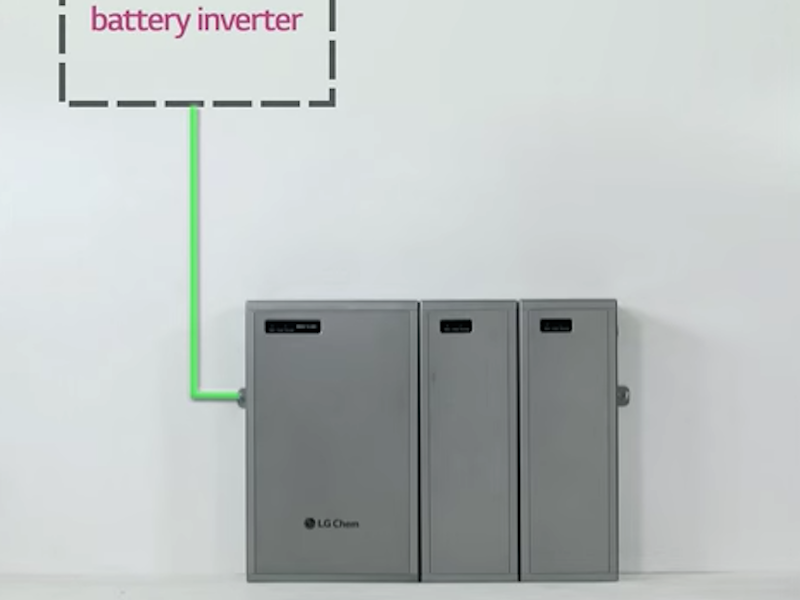
3. Start-up Orison offers a 40-pound at-home battery. That's significantly lighter than Tesla's Powerwall, but it only holds 2.2 kWh of energy. One Orison unit costs $1,600.

However, unlike Tesla's battery, you don't need a trained electrician to install Orison. Once you mount the flat wall panel, you simply plug in the separate lamp-like unit seen below, and you're good to go. You can combine five panels per the plug-in unit to store more energy.

You can reserve an Orison at-home battery on the start-up's website.
4. Sonnen, a German company, sells several at-home battery options with up to 16 kWh of storage. The eco compact version pictured here holds 4 kWh of energy and costs $5,950. It comes with the inverter included.

Sonnen recently raised $85 million to expand in Italy, Australia, the United States, and Britain. The company has sold more than 15,000 battery packs and currently derives two-thirds of its revenue from its German operations. But the company is looking to increase its revenue share abroad in the next year.
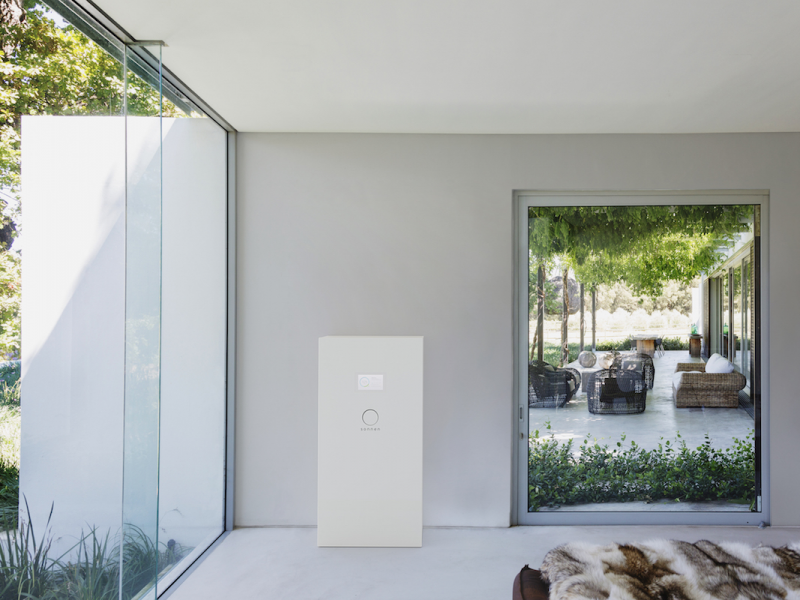
Source: Financial Times
5. SimpliPhi Power is an at-home battery maker that's been around since 2002, but its original name was LibertyPak Company. SimpliPhi offers several battery options, the largest of which stores 3.4 kWh of energy.

The Powervault is modular and can be combined to make a battery pack as large as you need. SimpliPhi does not publicly disclose pricing information.

6. Sunverge offers battery systems providing anywhere from 6 kWh to 23 kWh of energy storage. Weighing around 500 pounds, the battery has to be installed by a trained Sunverge specialist.

Sunverge comes with a corresponding app so you can monitor your solar energy storage and see electric grid costs at different times. A Sunverge unit can cost between $8,000 and $20,000, depending on the size you get.
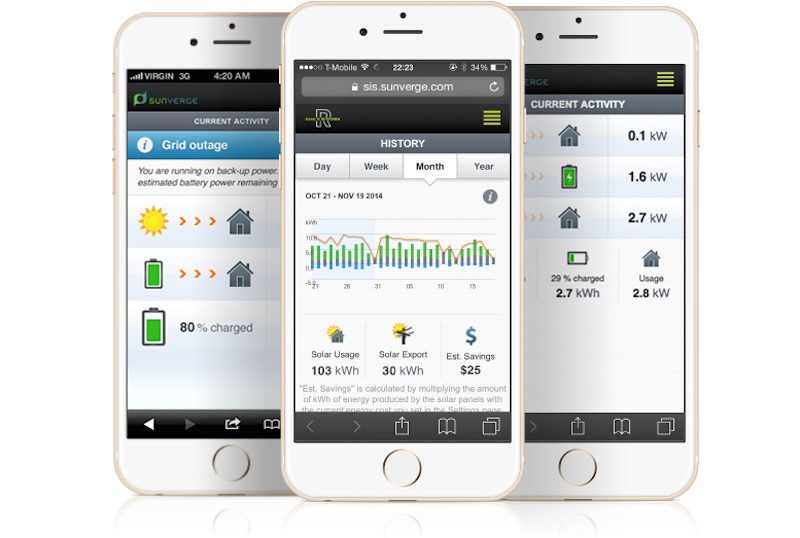
7. Powervault is an at-home battery system that is only available in the UK. All units come with an inverter included, and the most powerful model stores 6.6 kWh of energy. Prices start at roughly $3,000. Like Tesla's Powerwall, the Powervault must be installed by a trained electrician.
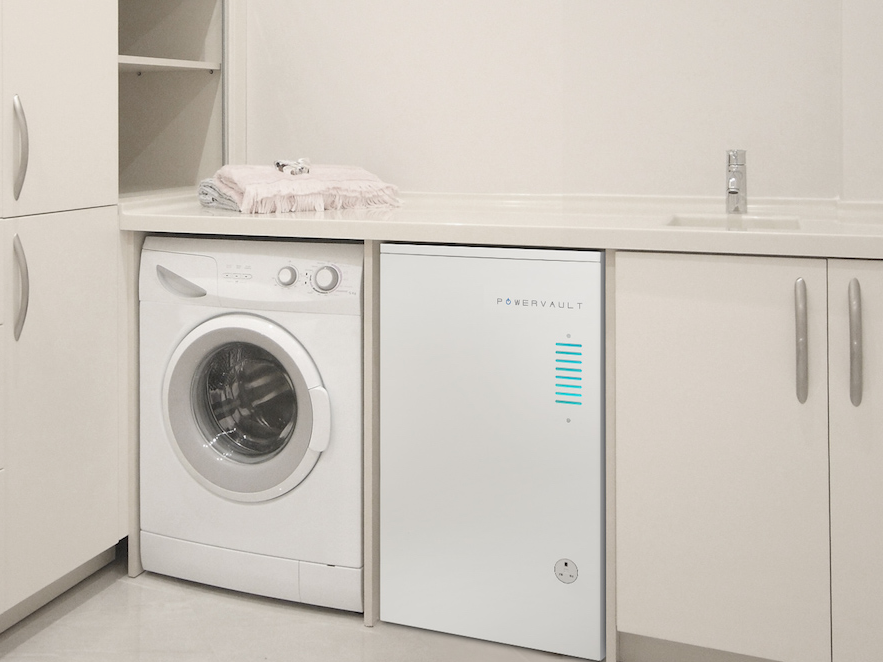
8. Mercedes sells an at-home battery in Germany and Australia. Each unit stores 2.5 kWh of energy, but you can combine eight units for 20 kWh of storage. An inverter is not included with Mercedes' home battery.

Mercedes says the price of the battery, installation, and inverter for a standard family home costs between $9,000 and $10,000. You can track energy storage on the corresponding app seen below.

9. ElectrIQ is creating a battery for US homes that stores 10 kWh of energy and will be available before the end of the year. Its retail price is $13,000 and includes the price of an inverter. The battery needs to be installed by a trained electrician.

10. Panasonic's at-home battery can store 8 kWh of energy. It's currently available in Australia, but Panasonic plans to roll out the battery in Europe. It's worth noting that Panasonic also makes the cells for Tesla's at-home battery.

Source: Clean Technica
Panasonic's battery weighs about 185 pounds, but the cost of a unit is not made readily available.
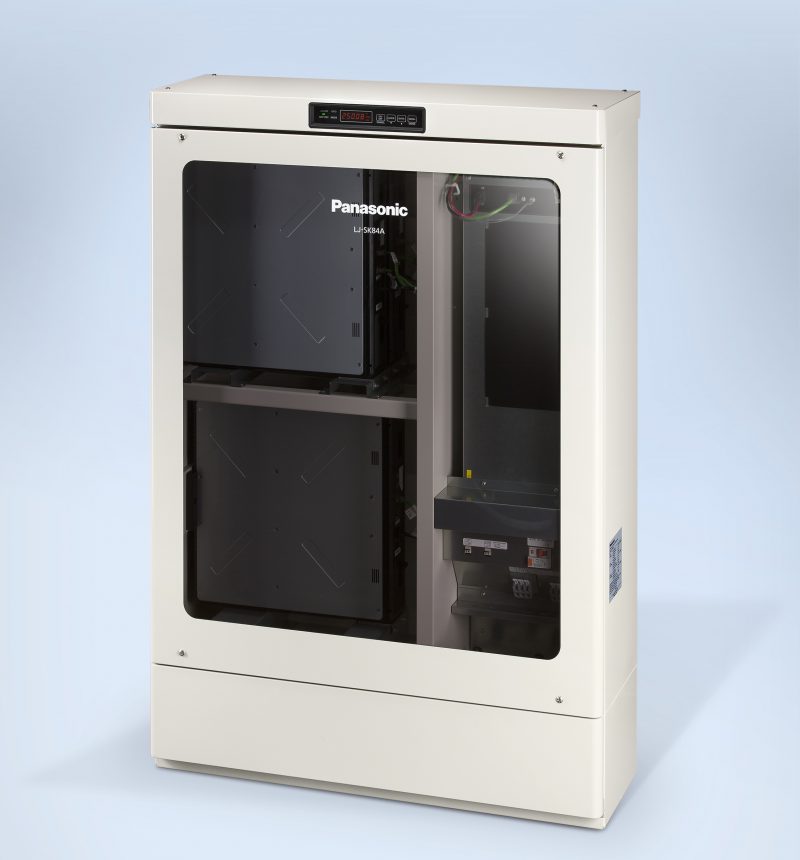
Panasonic did not immediately respond to Business Insider's request for comment on pricing.
11. Nissan offers a rechargeable battery option, called XStorage, which holds 4.2 kWh of energy storage. The automaker began taking pre-orders in September, but the battery is only available in Europe.

Nissan's xStorage battery costs $4,500, which includes the price of installation. Nissan is looking to set itself apart as a sustainable battery provider by using old battery cells in the units.
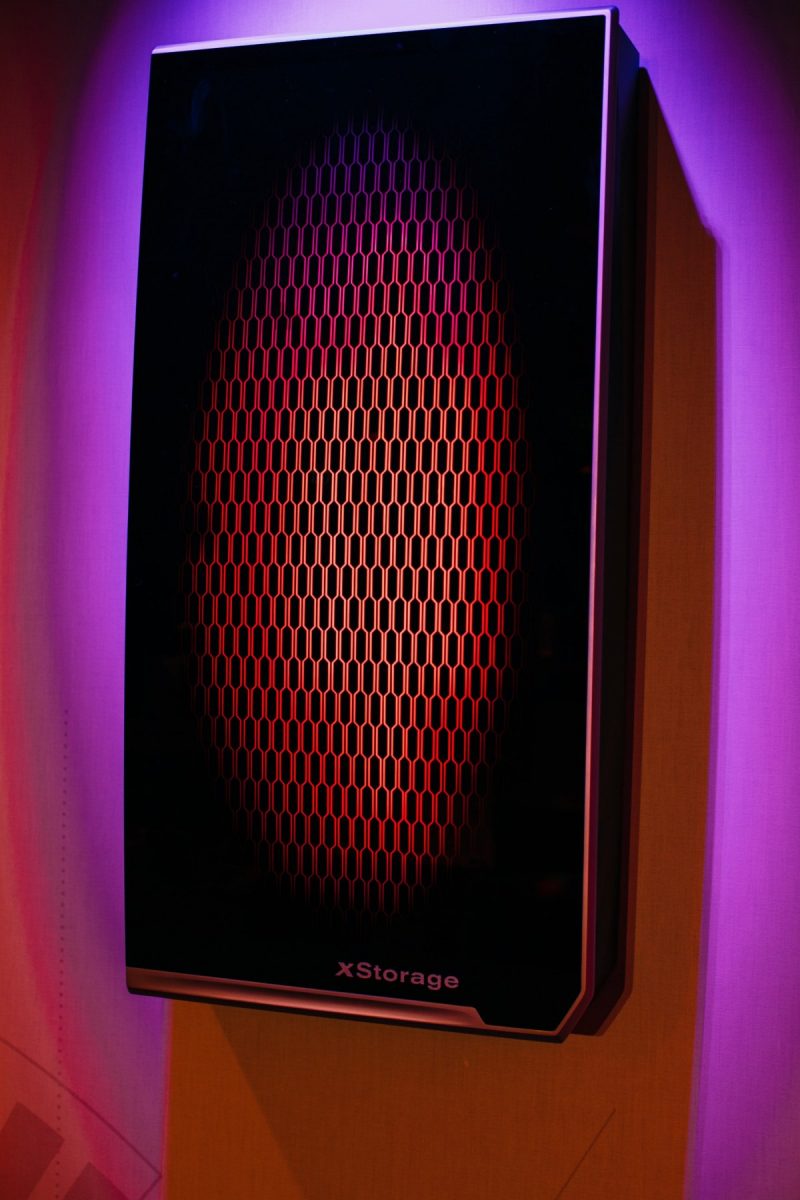
12. BMW offers a 6.4 kWh at-home battery option, but doesn't provide a price for the unit. Like Nissan, BMW is taking a sustainable approach by reusing batteries from its BMW i3 series. BMW plans to eventually offer two units that can store 22 kWh and 33 kWh.
